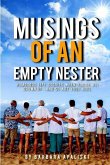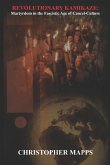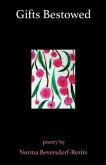'After-Jena: A Symphonic Poem' is in four parts and is named after the small university town in Germany that, at the end of the C18th and early C19th, saw the emergence of early Romanticism and Idealism in a revolutionary ethos that included the arts, sciences and politics. A central figure to this was Caroline Bohmer-Schlegel-Schelling, an extraordinary woman, who was also a key figure in the translation of Shakespeare into German. Gathered around her were an astonishing array of talent, including Fichte, Schiller, Goethe, William and Friedrich Schlegel, Novalis, Schelling and Holderlin. In that milieu the notion of non-duality became central in a view of the world as essentially dynamic and emergent, and of the essential oneness of poetry and philosophy as well as of poetry and science, as understood by Goethe and evident in the recasting of his treatise on the 'Metamorphosis of Plants' as a poem. Humans were seen as a part of the natural world not apart from it. This orientation is apparent in the works of Holderlin, and subsequently the works of Heidegger and Paul Celan. Indeed, even Schelling considered writing his philosophical works as poems, inspired as he was by Dante's 'Divine Comedy'. Their view and approach to creativity saw a radical break from the dominant dualistic and absolutist ideology of the day, something which has subsequently been lost. Non-duality was a key notion, and is shared with Taoism in China, Dzogchen in Tibet, as well as being evident among certain of the Pre-Socratic philosopher-poets of Ancient Greece. This poem, 'After-Jena' relates to our cataclysmic times from this perspective - rehearsing key themes of 'home' and 'homelessness', 'refuge' and 'estrangement' or 'alienation'. It ranges across Eastern Europe, Mongolia, Tibet, England in the Medieval period and English Romanticism, among other themes that are developed and varied as the poem unfolds on the destitution of our times and the shrinking hope of salvation that still just about remains alive. It is a poem of enormous scope, depth and ambition. A poem for our age.
Hinweis: Dieser Artikel kann nur an eine deutsche Lieferadresse ausgeliefert werden.
Hinweis: Dieser Artikel kann nur an eine deutsche Lieferadresse ausgeliefert werden.








